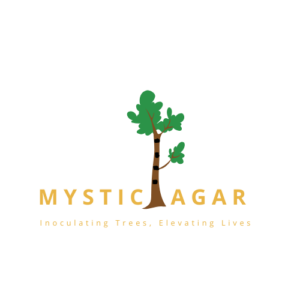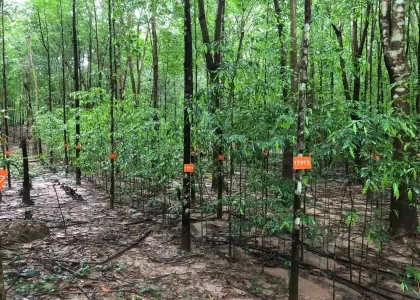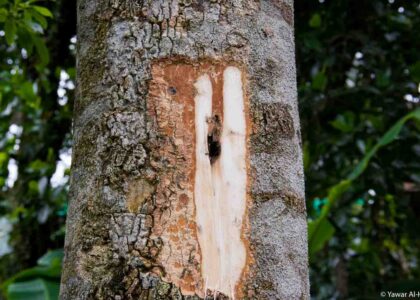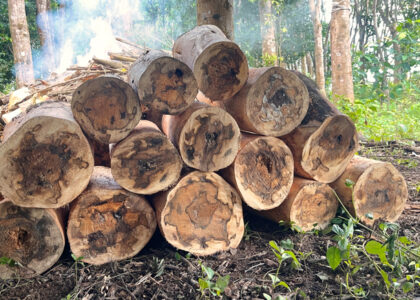The agricultural sector is constantly evolving, and innovative solutions are pivotal for enhancing productivity and sustainability. One such groundbreaking advancement is the introduction of Mytic Agar, a versatile hydrocolloid derived from seaweed. This natural substance not only improves soil health but also enhances crop yields and resilience against environmental stressors. As farmers worldwide embrace Mytic Agar, numerous success stories have emerged, showcasing its transformative impact on agriculture and the prosperity it brings to rural communities.
Transformative Impact of Mytic Agar on Agriculture Success
Mytic Agar has revolutionized the way farmers approach crop cultivation by significantly improving soil structure and fertility. As a natural gel-forming agent, it enhances water retention, thereby reducing the need for frequent irrigation. This is particularly beneficial in arid regions where water scarcity is a pressing concern. By improving moisture availability in the soil, Mytic Agar allows farmers to cultivate a wider variety of crops, ultimately leading to increased biodiversity and food security.
In addition to its hydrophilic properties, Mytic Agar acts as a natural soil conditioner, promoting the growth of beneficial microorganisms. These microorganisms play a crucial role in nutrient cycling and enhancing soil fertility. Farmers have reported a marked improvement in crop health and vitality, as well as a reduction in the reliance on chemical fertilizers. This shift not only lowers production costs but also aligns with sustainable agricultural practices, fostering an eco-friendly approach that benefits both farmers and the environment.
Furthermore, the use of Mytic Agar has shown remarkable results in enhancing plant resilience against pests and diseases. By creating a protective barrier around plant roots and improving overall vigor, crops cultivated with Mytic Agar exhibit increased tolerance to environmental stressors, such as drought and temperature fluctuations. This resilience translates to higher yields and better-quality produce, ensuring farmers can maintain profitability even in challenging climatic conditions.
Inspiring Case Studies: Farmers Flourishing with Mytic Agar
One of the standout success stories comes from a small-scale farmer in the coastal region of Brazil. Faced with declining soil quality and increasing drought conditions, this farmer began incorporating Mytic Agar into his cultivation practices. Over a single growing season, he witnessed a dramatic increase in crop yields for his organic banana plants, with production doubling compared to previous years. The improved soil structure and moisture retention not only boosted his income but also led to a healthier ecosystem on his farm, attracting more beneficial insects and wildlife.
Another compelling case can be found in India, where farmers in the Punjab region have adopted Mytic Agar in their rice and wheat cultivation. Initially skeptical, these farmers were convinced to try the product after seeing preliminary results from neighboring fields. The outcome was astonishing—yields increased by 25% on average, with a substantial decrease in the use of chemical fertilizers. This shift not only improved their economic situation but also contributed to a more sustainable agricultural practice, positively impacting the environment and local communities.
In Kenya, a cooperative of smallholders has also reaped the benefits of Mytic Agar. By collectively investing in this innovative product, these farmers have transformed their agricultural output. They have diversified their crops and improved their bargaining power in local markets. The cooperative model, combined with the use of Mytic Agar, has empowered these farmers economically, enabling them to invest in education and healthcare for their families, thereby fostering holistic community development.
The success stories of farmers thriving with Mytic Agar exemplify the transformative potential of innovative agricultural practices. By improving soil health, enhancing crop resilience, and increasing yields, Mytic Agar not only fosters economic stability for farmers but also promotes sustainable agricultural methods that benefit the environment. As more farmers adopt these practices, the ripple effects can lead to a brighter future for global agriculture, ensuring food security and environmental sustainability for generations to come. The journey of these farmers serves as a testament to the power of innovation in overcoming the challenges faced in modern agriculture, inspiring others to follow suit.




